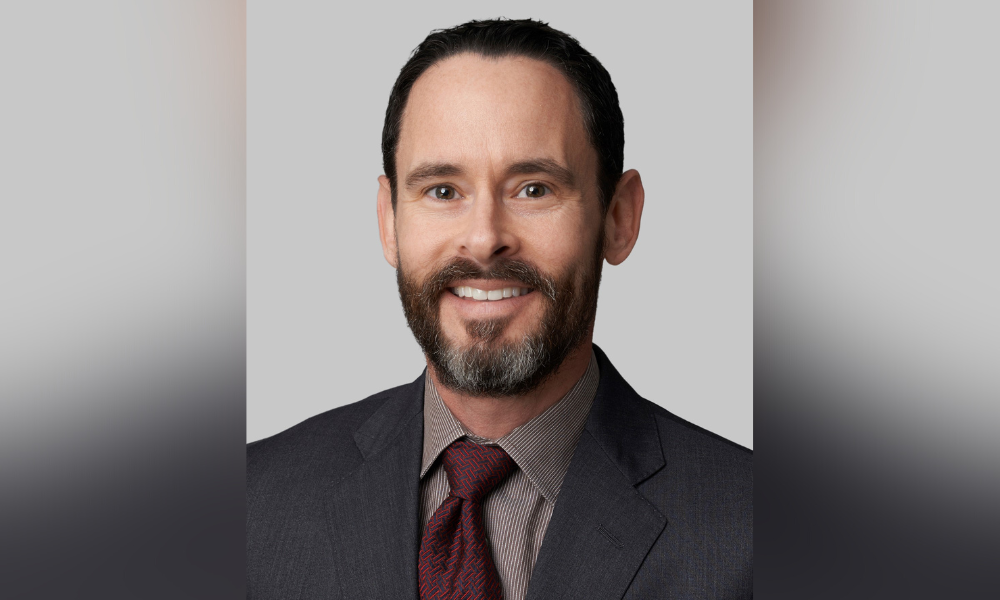
There was 'concern and fear' over losing sexual orientation, gender identity protections, lawyer says

The U.S. Department of Labor has rescinded a Trump administration rule that shielded federal contractors from anti-discrimination laws regarding religion.
“It’s pretty clear that, politically speaking, the Trump rule was to help certain companies avoid certain Equal Employment Opportunity requirements related to sexual orientation and gender identity,” says employment attorney Jack Lord, partner at international law firm Foley & Lardner LLP, which has offices throughout California.
“The Trump administration didn’t say that, but that was the concern and fear. The new religious exemption rule puts things back the way they were, in which certain companies that are religiously focused can’t make certain objections.”
In 1965, former President Lyndon B. Johnson signed Executive Order 11246, which prohibits federal contractors from discriminating on the basis of religion, race, color, sex, sexual orientation, gender identity or national origin.
Based on the religious exemption in Title VII of the Civil Rights Act of 1964, former President George W. Bush amended the order in 2002 to provide an exemption for federal contractors who are a “religious corporation, association, educational institution, or society, with respect to the employment of individuals of a particular religion.” Therefore, those employers could legally give preference to job applicants based on their religious beliefs or affiliation.
In 2020, the Trump administration expanded the exemption to include employers that are “organized for a religious purpose, engaged primarily in carrying out that religious purpose, hold themselves out to the public as entities for carrying out that religious purpose and don’t engage primarily or substantially in the exchange of goods or services for money beyond nominal amounts.”
“Religious organizations should not have to fear that acceptance of a federal contract or subcontract will require them to abandon their religious character or identity,” then-Secretary of Labor Eugene Scalia said in a press release.
Under the rule, the religious exemption “allowed religious contractors not only to prefer in employment individuals who share their religion, but also to condition employment on acceptance of or adherence to religious tenets as understood by the employing contractor.” As a result, politicians and civil rights advocates blasted the Trump administration over the rule, claiming it would allow certain employers to fire LGBTQ+ employees due to religious beliefs.
From the very beginning, @realDonaldTrump's administration has led a campaign of bigotry and intolerance. This rule would greenlight discrimination of #LGBTQ Americans in the workplace. This is dangerous.https://t.co/wtUOXzTUSJ
— Congressman Bill Foster (@RepBillFoster) August 15, 2019
It is unconscionable that the federal government is trying to yet again roll back our progress by eviscerating enforcement of non-discrimination protections and exposing LGBTQ employees of federal contractors. We cannot and we will not be silent. https://t.co/20ihYMCJua
— Alphonso David (@AlphonsoDavid) August 14, 2019
“The explanation for the rule given by the Trump administration was that certain religious entities – maybe not churches necessarily – might be scared or not want to apply to become federal government contractors,” Lord, co-chair of the firm’s labor and employment practice, told HRD. “But we’re in a culture war era, and politicians definitely pit groups against each other, whether it’s gender, race and in this instance, religion versus sexual orientation or gender identity.”
Last week, the Office of Federal Contract Compliance Programs (OFCCP) announced the policy reversal, following up on President Joe Biden’s commitment to “restore full implementation” of former President Barack Obama’s executive order prohibiting discrimination by federal contractors.
“The 2020 rule purported to clarify the scope and application of the Executive Order 11246 religious exemption,” wrote Jenny R. Yang, director of the OFCCP, on the U.S. Department of Labor Blog.
“On balance, however, it increased confusion and uncertainty about the religious exemption because it diverged from the approach to the Title VII religious exemption taken by courts, the Equal Employment Opportunity Commission, and the Department of Justice, as well as from OFCCP’s past practice. We remain committed to protecting workers from discrimination and safeguarding religious freedom in accordance with applicable legal authority.”
The OFCCP says it received more than 5,000 comments on its proposal to rescind the rule, including support from state officials, members of Congress, labor unions, contractor associations, and religious and civil liberties organizations. Conversely, other members of Congress, religious colleges and universities, religious advocacy organizations, and religious and civil liberties litigation organizations opposed the proposal.
Those in support of the Trump administration rule said it “provided helpful, clear standards, which they believed encouraged religious organizations to become federal contractors while appropriately protecting employers’ religious liberties.”
In fiscal year 2021, the federal government spent about $637 billion on contracts, a decrease of $54 billion from FY 2020 after adjusting for inflation, according to the U.S. Government Accountability Office.
The new rule will go into effect on March 31.